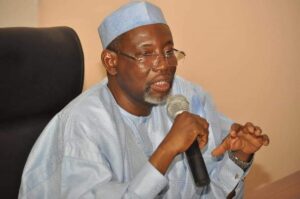Lassa fever killed 85 in six weeks, cases now 531
The Nigeria Centre for Disease Control and Prevention has confirmed 68 more cases of Lassa fever, raising the total number of confirmed cases in the country to 531.
The NCDC, in its Lassa fever situation report for week six released on Monday, revealed that the disease killed 15 persons in one week as the death toll rose to 85 from January to February 12, 2023.
According to the report, the number of suspected cases increased compared to that reported for the same period in 2022.
The suspected cases of the infection for week six in 2022 were 1,631 while the suspected for week six in 2023 are 2,244.
Lassa fever is an acute viral haemorrhagic illness caused by the Lassa virus, a member of the arenavirus family of viruses. It is endemic in Sierra Leone, Liberia, Guinea, and Nigeria. Neighbouring countries are also at risk.
According to the agency, the late presentation of cases is leading to an increase in the case fatality rate.
It also said there was poor health-seeking behaviour due to the high cost of treatment and clinical management of the disease and poor environmental sanitation conditions observed in high-burden communities.
The NCDC report read in part, “In week 6, the number of new confirmed cases decreased from 106 in week 5 2023 to 68 cases. These were reported from Ondo, Edo, Bauchi, Taraba, Ebonyi, Gombe, Benue, Nasarawa, and Plateau States.
“Cumulatively from week 1 to week 6, 2023, 85 deaths have been reported with a CFR of 16.0 per cent, which is lower than the CFR for the same period in 2022 (16.5 per cent).
“In total for 2023, 20 States have recorded at least one confirmed case across 79 Local Government Areas.”
The report also showed that 74 per cent of all confirmed Lassa fever cases were reported from Ondo, Edo, and Bauchi states while 26 per cent were reported from six states with confirmed Lassa fever cases.
“Of the 74 per cent confirmed cases, Ondo reported 36 per cent, Edo 31 per cent, and Bauchi seven per cent.
“The predominant age group affected is 21-30 years (Range: 1 to 93 years, Median Age: 31 years). The male-to-female ratio for confirmed cases is 1:0.9.
“The number of suspected cases increased compared to that reported for the same period in 2022.
Reports state that while four new healthcare workers were affected in the reporting week six, 28 healthcare workers have been affected by the disease so far this year.




